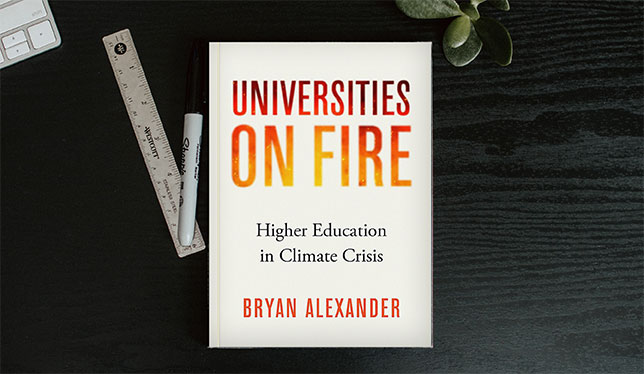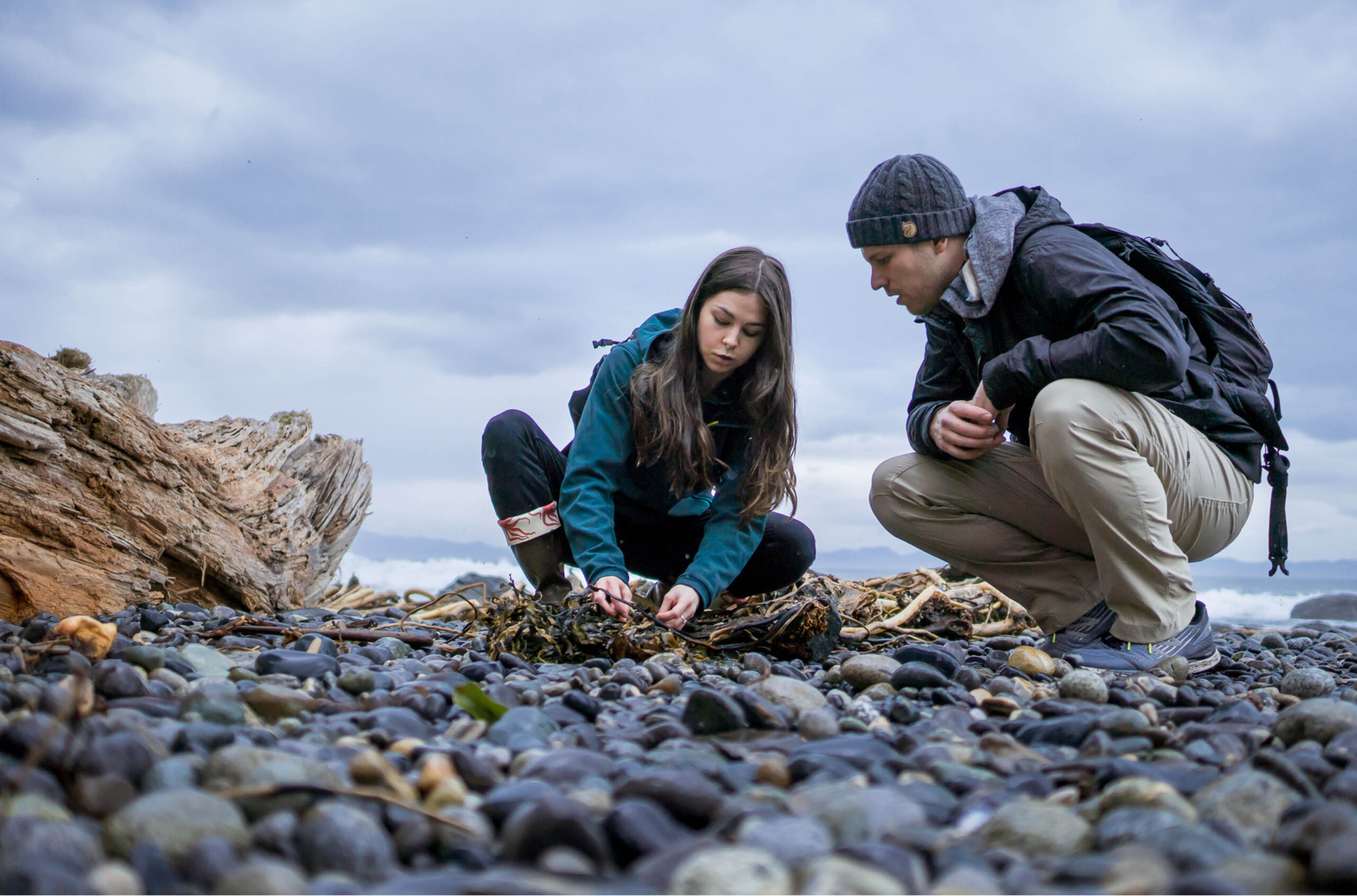Universities on Fire is brisk, inspiring and sobering
Georgetown University futurist Bryan Alexander ponders higher education’s next 75 years in a climate-changed world.

The University of New Brunswick’s Harriet Irving Library is an impressive building with a wonderful collection. But it may have a name problem. In a climate crisis, can the intellectual centre of a university be named after the matriarch of an oil and gas family?
Looking ahead, it’s not hard to imagine faculty, staff, and students asking this question, and a million questions like it on campuses around the world. Should universities ban the combustion engine and turn parking lots into green spaces, vegetable gardens, apple orchards, or even small solar farms? When does it make sense to build seawalls and when does it make better sense to cut and run? Should engineering faculties be prohibited from undertaking controversial research in geoengineering, or will that research be essential to a hothouse Earth? In what ways can campuses reduce their carbon footprint through bike lanes, passive buildings, and vegan dining halls?
An adjunct professor and senior scholar at Georgetown University, Bryan Alexander surveys the next 75 years to see how universities and colleges will be impacted by the climate crisis and what they can offer humanity as it navigates climate breakdown. Long story short, it ain’t pretty and universities can offer a lot, in terms of research, teaching, and leadership.
Dr. Alexander studies change over time, much like an historian, only he’s not an historian. He’s a futurist who looks at transitions, trends, and horizons to forecast what is coming down the pike. Researching the future isn’t tarot cards and crystal balls. It’s serious stuff. It helps too that Dr. Alexander is a lovely writer with a knack for clarity and a fondness for epigraphs. (The epigraphs alone are worth the price of admission.)
To reveal the future and then to make it accessible, he uses fire in three ways: literally, metonymically, and symbolically. On a hotter planet, aridification and desertification will make some places more susceptible to wildfires. How universities in these regions adapt, or don’t, is a matter of survival, or not. As a metonym, fire is any climate threat: sea level rise, saltwater intrusion, and extreme precipitation events threaten universities in countless ways. In other words, being on fire may mean being under water. Finally, fire refers to passion, activism, and the empowering sense of possibility that comes from joining forces to effect change. “A university may be on fire,” Dr. Alexander writes, “with the organizing energy of its students, not to mention its faculty or staff.”
Give or take, there are 30,000 postsecondary institutions in the world, 220 million students, and six million faculty members. Dr. Alexander hopes that, with hard work and imagination, this $2- to $3-trillion sector can be part of the solution. Leading by example, universities and colleges can mitigate their environmental footprints, undertake climate research in the sciences, social sciences, and humanities, close the town-gown divide, and teach everything from advanced atmospheric chemistry to basic climate literacy. “Think of a college,” he writes, “where all students must take at least one class in the climate crisis.” And imagine a university where the administration bans, or severely limits, travel to academic conferences in far-flung but admittedly beautiful places, a perk on someone else’s dime that some faculty members treat as an entitlement, like parental leave and a dental plan. (Actually, a group at Tufts University already promotes flying less to reduce academia’s carbon footprint through Multi-Site Low-Carbon Conference Hosting, or MULCH.)
Brisk, inspiring, and sobering, Universities on Fire has a simple message: the climate crisis is real; there are fires everywhere; and “it is up to us to choose if those will be flames of destruction or the lights of illumination.”
Fortunately, my university is choosing to do some pretty cool things: green roofs, solar panels, community gardens, a new minor in environmental humanities and social sciences, and a required course in climate and the environment in the faculty of arts, among other initiatives.
But what about the Harriet Irving Library? A handful of students have talked about starting an online petition to rename it, arguing that, like all oil and gas companies, Irving’s business model is, in the words of the United Nations secretary-general, Antonio Guterres, “at odds with human survival.” But other students are less certain, either because they have bigger climate fish to fry, or because they understand that Irving Oil Ltd. is an impressive company and a large employer. When UNB catches on fire, in the symbolic sense, I suspect that there will be petitions and counter-petitions, as well as demonstrations and counter-demonstrations, on the library steps. Or maybe not, because it’s equally foreseeable that, in the worst-case climate scenario sketched by Dr. Alexander, higher education will cease to function, meaning there will be no students and no library to rename.
Either way, things are about to get interesting.
Bryan Alexander. Universities on Fire: Higher Education in the Climate Crisis. Baltimore: Johns Hopkins University Press, 2023.
Donald Wright is a professor and chair of the political science department at the University of New Brunswick.
Featured Jobs
- Psychology - Assistant Professor (Speech-Language Pathology)University of Victoria
- Veterinary Medicine - Faculty Position (Large Animal Internal Medicine) University of Saskatchewan
- Canada Excellence Research Chair in Computational Social Science, AI, and Democracy (Associate or Full Professor)McGill University
- Business – Lecturer or Assistant Professor, 2-year term (Strategic Management) McMaster University













Post a comment
University Affairs moderates all comments according to the following guidelines. If approved, comments generally appear within one business day. We may republish particularly insightful remarks in our print edition or elsewhere.